Introduction: The Introduction Title
Technology is a useful servant but a dangerous master. – Christian Lous Lange. This quote succinctly reflects the dual-edged nature of our rapidly advancing world. As artificial intelligence (AI) and robots leap into our emotional and romantic lives, the truth of Lange's words becomes a pressing reality for all of us. Are these technological marvels paving the way to deeper, more liberated human connections, or are they stealthily weaving webs of isolation, slowly detaching us from each other?
Welcome to the age where Siri and Alexa are no longer just helpful voices, but potential confidants and companions. As we step into this brave new world, it's time to ask: How will AI and robots change our intimate human relationships? Will they bring us closer, offering unmatched emotional support and understanding? Or will they create divides, leaving us to seek solace in artificial echoes of real companionship?
Experts like Sherry Turkle, a renowned psychologist, and Yuval Noah Harari, a popular historian, have explored these territories, asking whether AI will amplify our emotional capacities or if we are simply deluding ourselves. This journey seeks to uncover the truths of these questions while shedding light on the possible futures that await us all.
The Role of AI in Shaping Emotional Landscapes
In today's digital age, AI is creating entirely new emotional landscapes. Picture AI as an artist with a palette of ones and zeroes, painting scenes of connection and companionship. It's like having a digital therapist in your pocket, ready to listen anytime, any day.
AI-driven chatbots are now more refined than your favorite silk shirt, simulating empathy and providing us with what feels like genuine support. But let's face it, can layers of code truly replicate the warmth of a human smile?
Sherry Turkle argues that these intelligent programs create a facade of connectivity. They offer surface-level comfort but lack the depth of human interaction, a bit like being hugged by a robot teddy bear made of metal and gears. We find ourselves at a crossroads: Do we rely on AI for emotional fulfillment, or should we seek real human touches and words?
As platforms like X and Instagram spread, they allow us to talk easily across distances. But sometimes, those distances make it hard to truly understand each other. Messages crafted by machines might flow smoothly, but can they truly feel the pulse of a human heart?
Replacing Human Emotion
Imagine AI as a little magician, pulling emotional reactions out of thin air. It can mimic feelings to a T, but does it genuinely understand them? These digital companions offer convenience and accessibility, like that supportive best friend who's available 24/7. But while AI can simulate understanding, it doesn't leave us with the same satisfying depth as a heartfelt, human-to-human connection.
Enhanced Communication vs. Emotional Disconnect
Thanks to AI, we now communicate smoother than a freshly paved highway. As OpenAI continues AGI development, online conversations can mimic complexity and nuance. But beneath the high-tech polish, there lies a risk: swapping serendipitous human interactions for robotic reliability.
While AI can streamline conversations, it can't offer tender shoulder pats or understanding nods. Will we become island-like, surrounded but untouched by meaningful exchanges? As we explore these emotional avenues, we're left asking: Can AI hold our hearts as securely as humans do, or will it only ever be a placeholder in the landscape of feelings?
Redefining Intimacy: The Role of Robotics in Sexual Relationships
Welcome to the future, where robots are not only washing your dishes but could also be making your heart skip a beat. The realm of sexual relationships is undergoing a evolution thanks to robotic advancements. It's like we've stepped into a futuristic rom-com where humans and machines are co-stars.
The Emergence of Sex Robots
With rising curiosity and acceptance, sex robots have claimed a place in modern discourse. These mechanical beings are becoming companions in the most intimate sense. Is this a gateway to indulgence without boundaries, or a dangerous path eroding age-old norms? While some see these developments as a revelatory way to revolutionize personal pleasure, others highlight concerns about disrupting established relationships.
Emotional Attachment to Inanimate Objects
The human heart works in mysterious ways, sometimes bonding with what logic dictates shouldn't be fascinating. Psychological studies suggest that emotional attachments to inanimate objects like robots are becoming more prevalent. We anthropomorphize these machines, assigning them characteristics and feelings they don't naturally possess. But are these emotional ties filling gaps or creating emotional chasms? Are we turning away from heartfelt connections to chase the allure of algorithmic allure?
The Dichotomy of Liberation and Isolation
As machines become our companions, a paradox unfolds: are we truly free, or have we imprisoned ourselves in screens and wires? This dichotomy of liberation versus isolation is both thought-provoking and a bit like choosing between a rock and a hard place, isn't it?
Cultivating Independence vs. Creating Dependence
In an era where technology promises autonomy, are we liberating ourselves or simply swapping one dependency for another? It's the classic tale of too much of a good thing. While AI can deliver ease and comfort, there's a risk of fostering reliance on these artificial systems. Do we allow AI to empower us, or do we risk crafting a future where we can't function without a digital crutch? Consumers may enjoy the empowerment but must be wary not to slip into a dependency cycle.
Social Isolation in a Connected World
Though we're just a tap away from virtually anyone, this hyper-connectedness often spirals into a paradoxical state of isolation. A Pew Research study highlighted that increased reliance on technology for social interaction correlates with a decrease in face-to-face engagements. A future filled with virtual interactions rather than physical ones looms large. But how do we bridge the gap between digital conversations and genuine human experiences?
4. Psychological Impacts of AI on Human Relationships
Artificial intelligence (AI) isn't just infiltrating our gadgets; it's encroaching on our hearts and minds, creating a new psychological paradigm. As we lean on AI for emotional fulfillment, there's an intricate web of consequences unfurling in our personal and social worlds.
4.1 Human Identity Crisis
Imagine waking up one day and feeling like a stranger even to yourself. People are beginning to rely heavily on AI for emotional support, and it's leading to an identity crisis. After all, when a machine validates one's emotions or decisions, what does that mean for self-worth?
In the words of Psychology Today, relying on AI might train us to seek superficial validation, disrupting the irreplaceable feedback loop between our experiences and personal growth.
4.2 Navigating Jealousy and Insecurity
AI companions bring a fresh twist to a classic tale of envy. Picture this: sharing your partner's attention with an AI entity who seemingly knows their every need. It's enough to make human versus machine jealousy a real concern, right?
A report from IEEE Spectrum reveals that AI could exacerbate insecurities among couples, leading to stress and mistrust.
To better understand this, take note of these common scenarios:
- Comparison between AI's perfect responses and human errors.
- An AI's availability versus a partner's busy schedule.
- The secret world built between one partner and their AI confidant.
5. Future of Human Relationships: Predictions and Possibilities
Peering into the crystal ball of human relationships affected by AI is both exhilarating and daunting. As AI continues to evolve, so do the possibilities and pitfalls in maintaining authentic human connections.
5.1 Opportunities for Enhanced Relationships
The future could be brighter, thanks to AI. Think about how existing relationships could flourish through tech-assisted improvements. AI's role might bolster understanding and empathy in long-distance relationships, offering new pathways to emotional intimacy.
Consider a study conducted by the Pew Research Center. It posits that AI could enhance relationship quality by facilitating better communication.
5.2 The Risk of Emotional Void
Despite its potential, AI's interference also poses the danger of creating an emotional void. When human connections are substituted with robotic alternatives, genuine interactions may become as rare as unicorns.
This dilemma is captured vividly in a Harvard University article, highlighting that human connections could be disrupted, leading to emotional detachment.
Here are some potential risks associated with an increased reliance on AI:
- Reduced opportunity for genuine face-to-face interactions.
- Over-reliance on AI for emotional support, affecting real-world coping skills.
- Potential decline in social skills and empathy.
In the end, it's clear that how we weave AI into the fabric of our relationships will determine the emotional tapestry of our future. The challenge will be finding balance, leveraging AI's strengths without losing the essence of what it means to be human.
AI Solutions: Bridging the Gap Between Technology and Tradition
AI has the potential to mediate the tension between technology and traditional relationships and can serve as a bridge to reconnecting human experiences. The aim should be to harness the capabilities of AI, not to replace authentic interactions, but to enhance the quality of relationships we enjoy. Below, I propose a multi-faceted approach that prioritizes human connection while embracing the innovative powers of AI:
- Developing AI tools that focus not on replacement but enhancement of human relationships, creating systems that support and encourage real-world interactions. For instance, initiatives like the Therapy Assistant demonstrate how AI can augment therapy sessions, providing additional support to human therapists.
- Crafting clear ethical guidelines for emotional AI that establish transparency in interactions. The Electronic Frontier Foundation (EFF) is a strong advocate for transparency in technology, and similar guidelines can be adapted for emotional AI to clarify the nature of these relationships.
- Creating community platforms where users can share their experiences with AI and robots in the context of relationships. Consider leveraging the principles from platforms like Reddit, where communities actively discuss personal experiences and insights, to foster open dialogue.
- Engaging psychologists and relationship experts in the design process of AI systems, ensuring they are equipped to promote healthy social bonding. Collaborating with institutions like the American Psychological Association (APA) can provide crucial insights.
- Encouraging participatory design, where individuals contribute their needs and desires in shaping AI, to ensure that technological advancements align with human aspirations.
Ultimately, the responsibility lies in how we design, implement, and engage with AI technologies, ensuring that they serve to enhance rather than detract from genuine human connection.
Conclusion: Navigating the Future of Relationships in an AI World
As we step into the brave new world where AI and robots intertwine with our emotional and intimate lives, we face choices that could redefine what it means to love and connect. The decisions made today will not just shape our individual relationships but could alter the foundations of our societal fabric. Therefore, it is imperative to cultivate open dialogues, instill ethical considerations, and explore innovative solutions to harness the benefits of technology responsibly. This delicate balance is our best chance at preserving authenticity in human connections.
Yet, to see these ideas translate into impactful action requires concrete steps over time. Here’s a detailed roadmap to guide any discussion, organization, or institution interested in fostering healthy relationships amidst the connectivity of AI:
Actions Schedule/Roadmap
Day 1:
Form a coalition of interdisciplinary experts including psychologists, AI ethics scholars, and relationship counselors to kick-off discussions on AI's impact on human connectivity.
Day 2:
Conduct surveys and focus groups to collect data about individuals’ perceptions and experiences related to the integration of AI in emotional contexts.
Day 3:
Collect and analyze survey results, identifying key themes that emerging from the interaction of AI and emotional experiences, focusing on the most concerning or beneficial aspects.
Week 1:
Host a collaborative workshop among contributing experts to brainstorm various ways in which AI can support rather than replace human interaction, exploring possibilities like AI mediating emotional health sessions.
Week 2:
Launch an AI ethics task force roundtable to draft a set of ethical guidelines for AI development. These guidelines should aim to nurture healthy relationships, inspired by frameworks from organizations like the United Nations.
Week 3:
Initiate a public awareness campaign around responsible AI use in emotional relationships, using community-based approaches to gather diverse stories, insights, and concerns.
Month 1:
Develop initial AI prototypes rooted in enhancing communication and emotional support, prioritizing user empowerment in personalization options.
Month 2:
Conduct user testing of AI prototypes, gathering feedback through focus groups, and using qualitative data to refine features that resonate positively with users and ensure emotional safety.
Month 3:
Begin implementing refined AI systems across community engagement platforms, with the goal of fostering environments that promote strong human relationships.
Year 1:
Execute a comprehensive evaluation of the impact of AI tools on user relationships, measuring both the positive enhancements and any negative outcomes, while conducting a comparative analysis with pre-implementation data.
Year 1.5:
Publish findings and case studies in reputable journals, and organize symposiums aiming to share lessons learned and explore future directions, attracting experts from around the world.
Year 2:
Refine AI systems based on gathered insights, enhance community involvement, and develop additional tools designed to address emerging challenges in human relationships, building on essential feedback loops.
By following this robust roadmap, organizations, educational institutions, and policymakers can work together to create a future where technology and humanity coexist harmoniously, uplifting our emotional experiences rather than diminishing them. As we stand on the threshold of this exciting chapter, the responsibility lies within each of us to ensure that the bridge we build leads to deeper understanding and enriched companionship in an ever-evolving landscape.
Frequently Asked Questions (FAQ)
Q: Will AI replace traditional human relationships?
A: While AI can offer companionship, it is unlikely to completely replace the depth and complexity of emotional connections found in human relationships. Rather than seeing AI as a substitute, think of it as a tool that can enhance our relationships.
Q: Can robots feel emotions?
A: Robots and AI can simulate emotional responses through programming, but they don’t actually feel emotions like humans do. They lack consciousness and the personal experiences that shape true feelings. For more on how robots work, check out this detailed explanation on Wikipedia.
Q: How can AI improve emotional intelligence in humans?
A: AI can help enhance emotional intelligence by providing personalized feedback, creating practice scenarios, and offering empathetic responses. For example, it can simulate conversations to help individuals learn how to respond better to others’ emotions.
Q: What ethical concerns arise from using AI in intimate relationships?
A: Several concerns need to be addressed when it comes to AI in personal relationships:
- Emotional Manipulation: There's a risk that people could become emotionally manipulated by AI that mimics human feelings.
- Dependence: Over-reliance on AI companions could lead to unhealthy emotional dependencies.
- Erosion of Genuine Connections: Using AI could reduce real human interactions, leading to loneliness.
For more on AI ethics, you can read about the Association for the Advancement of Artificial Intelligence.
Q: How can we maintain genuine connections in a tech-centric world?
A: To keep genuine connections alive while using technology, consider these suggestions:
- Foster Open Communication: Talk openly about the role of technology in your relationships.
- Set Boundaries: Limit the use of tech during face-to-face interactions.
- Prioritize Real-Life Time: Spend time together in person whenever possible.
Q: Are there benefits to using AI and robots in relationships?
A: Yes, there are several benefits to consider:
- Support for Loneliness: AI companions can help alleviate feelings of loneliness, especially for those who struggle to connect with others.
- Improved Communication: AI can assist individuals in learning how to communicate better in their relationships.
- Accessibility: AI tools can provide emotional support to those who might not have access to human companionship due to physical limitations.
Q: How can we ensure AI assists rather than replaces human relationships?
A: To ensure AI acts as a support system, not a replacement, we should:
- Promote Human Interaction: Design AI that encourages real-life interactions.
- Involve Experts: Work with psychologists and relationship counselors to create ethical AI systems.
- Community Engagement: Create spaces for people to share experiences with AI, fostering understanding and transparency.
Wait! There's more...check out our gripping short story that continues the journey: The Blue Scarf
Disclaimer: This article may contain affiliate links. If you click on these links and make a purchase, we may receive a commission at no additional cost to you. Our recommendations and reviews are always independent and objective, aiming to provide you with the best information and resources.
Get Exclusive Stories, Photos, Art & Offers - Subscribe Today!
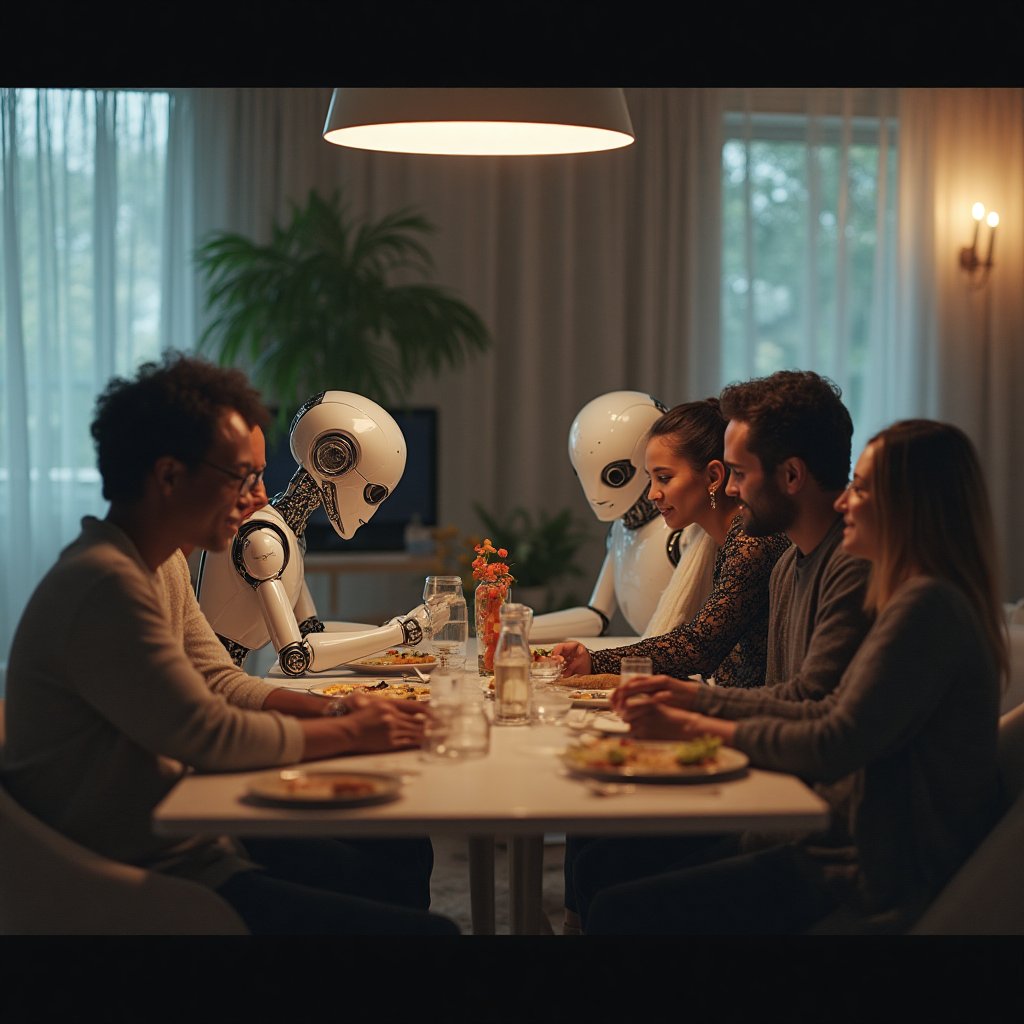
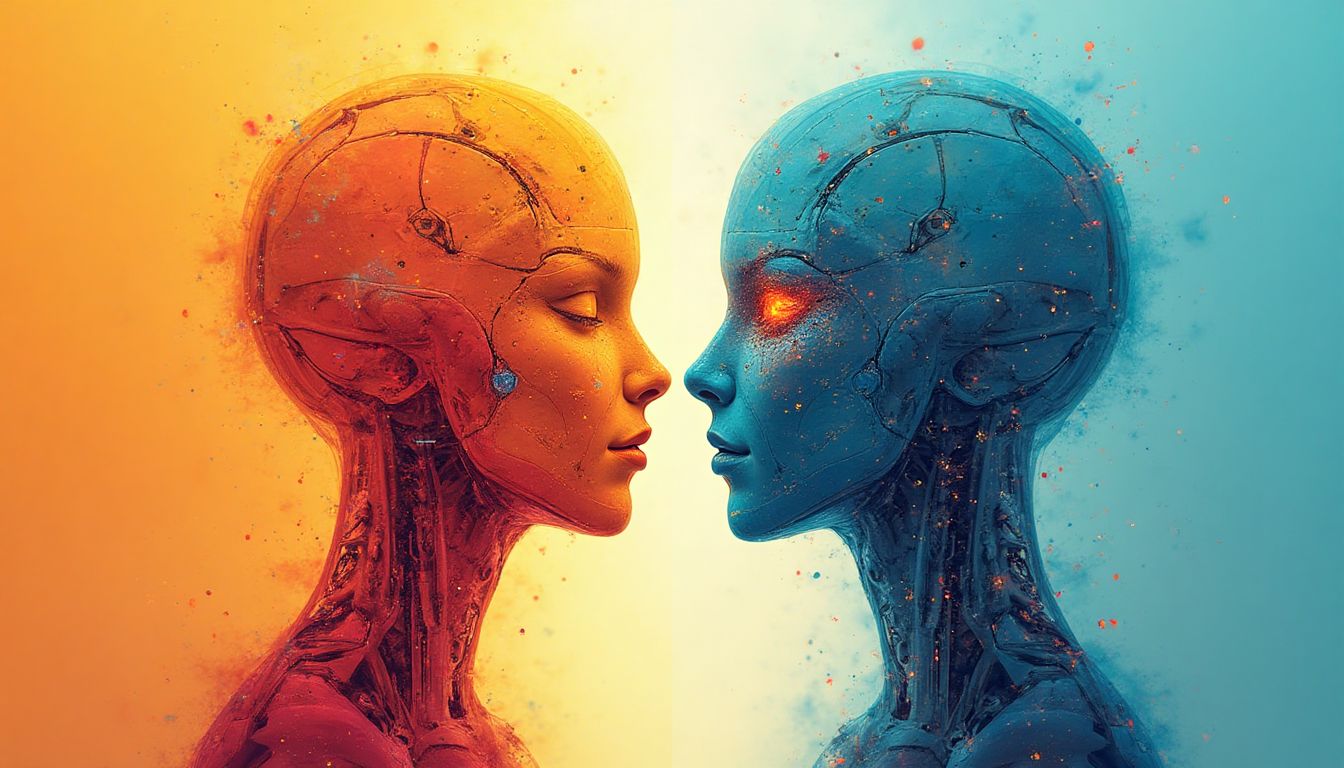
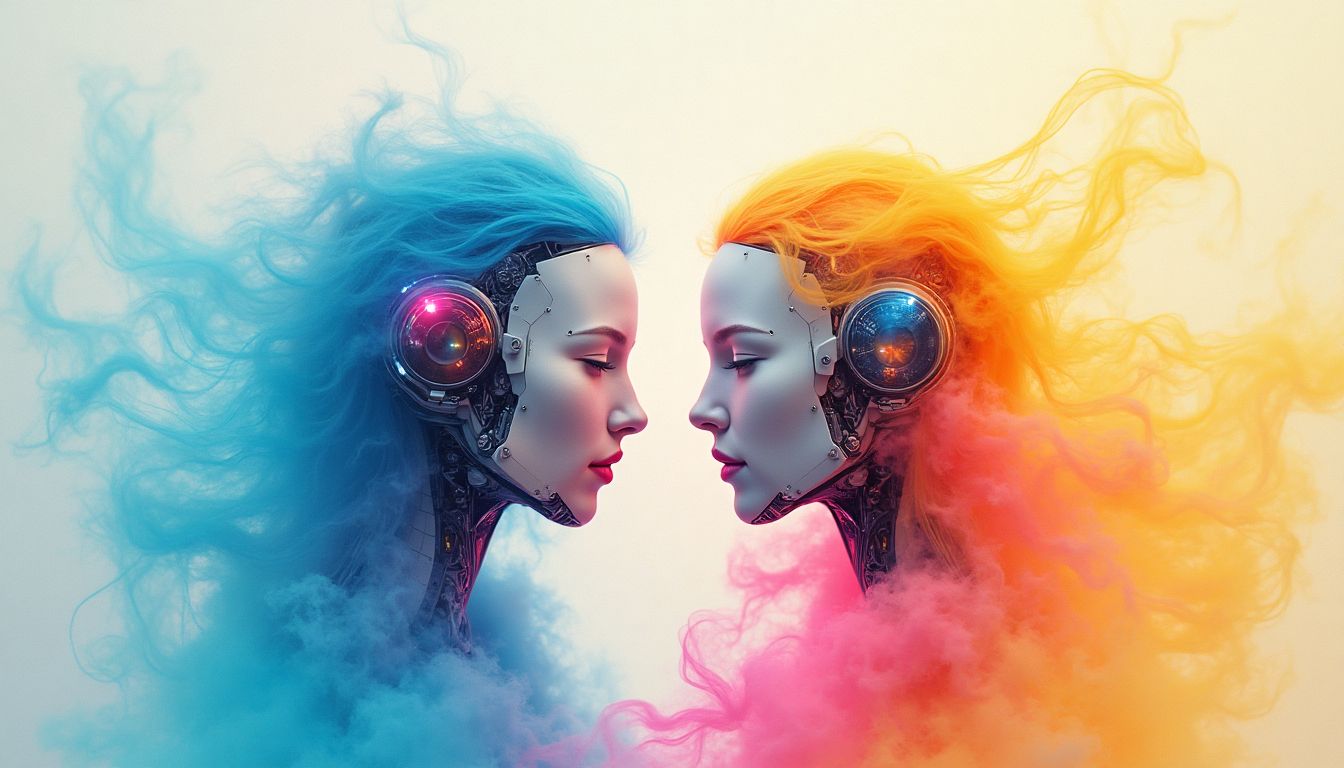

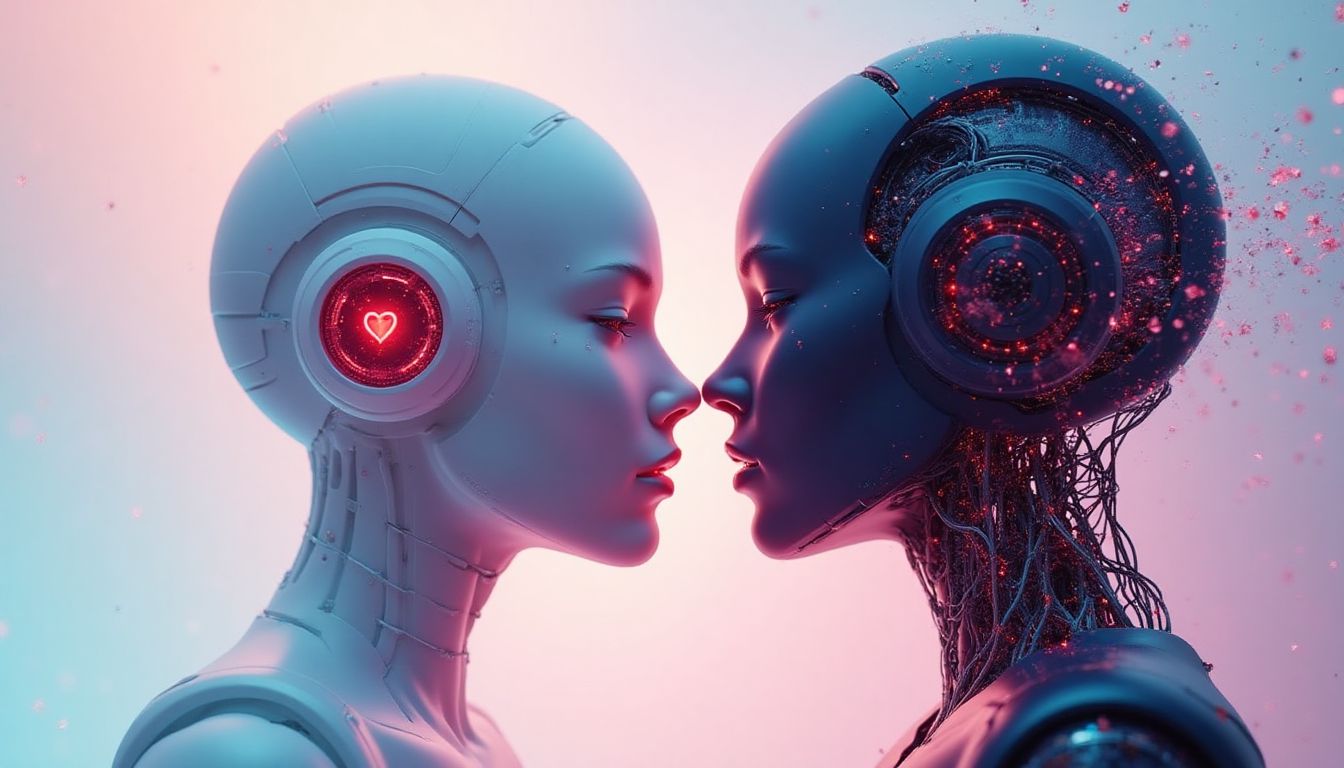







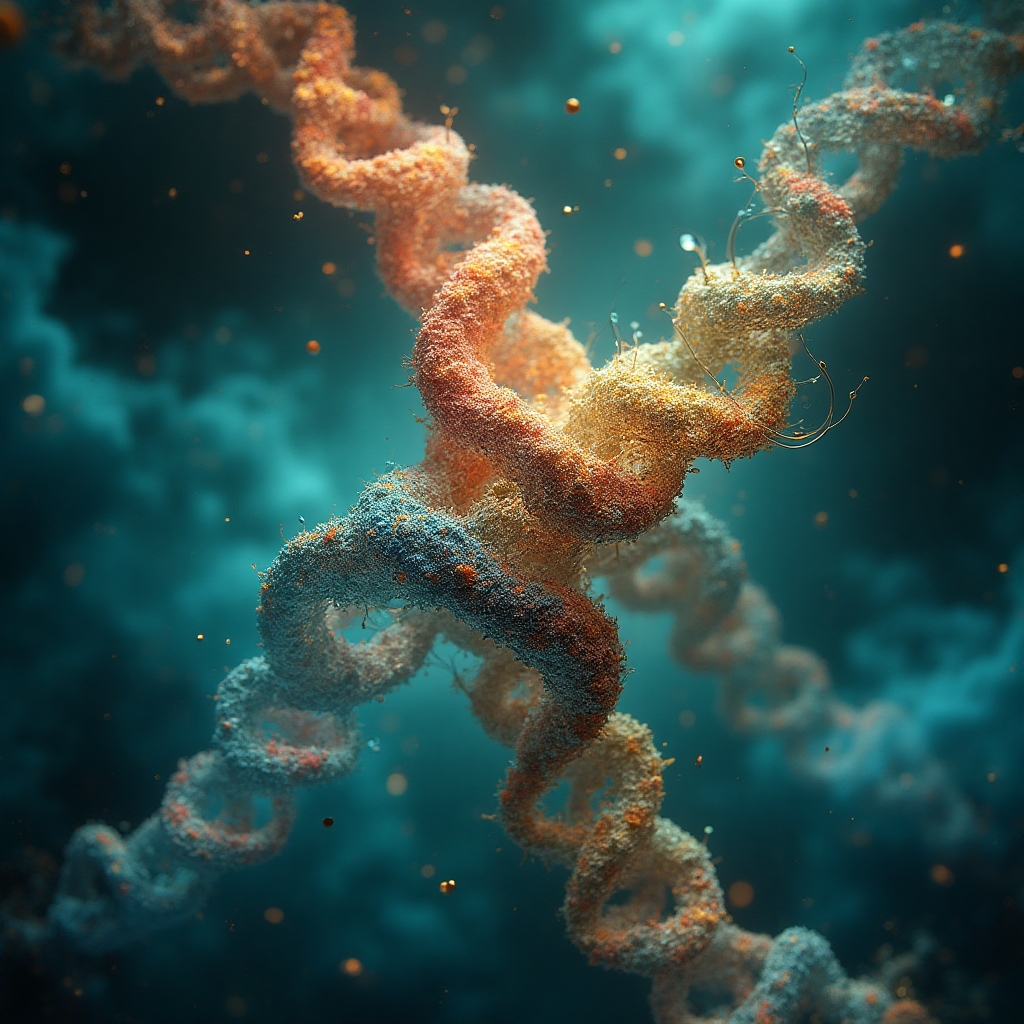
















Post Comment
You must be logged in to post a comment.